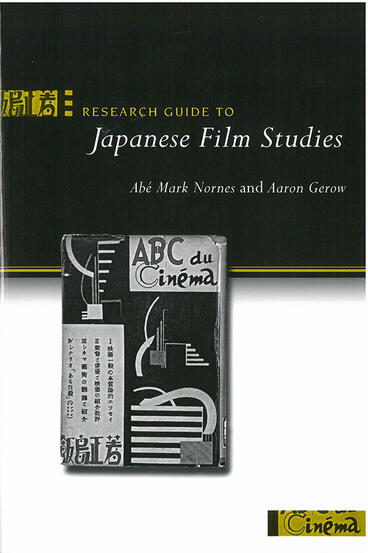Research Guide to Japanese Film Studies
Provides a snapshot of all the archival and bibliographic resources available to students and scholars of Japanese cinema
Description
The Research Guide to Japanese Film Studies provides a snapshot of all the archival and bibliographic resources available to students and scholars of Japanese cinema. Among the nations of the world, Japan has enjoyed an impressively lively print culture related to cinema. The first film books and periodicals appeared shortly after the birth of cinema, proliferating wildly in the 1910s with only the slightest pause in the dark days of World War II. The numbers of publications match the enormous scale of film production, but with the lack of support for film studies in Japan, much of it remains as uncharted territory, with few maps to negotiate the maze of material. This book is the first comprehensive guide ever published for approaching the complex archive for Japanese cinema. It lists all the libraries and film archives in the world with significant collections of film prints, still photographs, archival records, books, and periodicals. It provides a full annotated bibliography of the core books and magazines for the field. And it supplies hints for how to find and access materials for any research project. Above and beyond that, Nornes and Gerow’s Research Guide to Japanese Film Studies constitutes a comprehensive overview of the impressive dimensions and depth of the print culture surrounding Japanese film, and a guideline for future research in the field. This is an essential book for anyone seriously thinking about Japan and its cinema.
Abé Mark Nornes is Professor of Asian Cinema at the University of Michigan, where he specializes in Japanese film and documentary. He is the author Japanese Documentary Film: From the Meiji Era to Hiroshima (2003) and Cinema Babel: Trans
Reviews
"In its field I cannot imagine a research guide more needed. For whole decades scholars have struggled simply to locate sources, even to find out what there were. Now, however, the skill and stamina of Nornes and Gerow have resulted in a reference work which both illuminates and defines this field, clearing a formerly obscured terrain for future scholarship.”—Donald Richie
“Every national cinema should be graced with such a resource as the one Nornes and Gerow have so generously and painstakingly assembled. This is a welcome and welcoming gateway through which will pass the next generation of scholars, able at last to swiftly draw on all that is available, as they make more become available in turn. Let’s hope that generation will exhibit the drive, clarity, comprehensiveness, and vision that these authors display. Their ‘frequently asked questions’ are ones I have been asked for decades; at last I have the answers.”—Dudley Andrew, Yale University
"A remarkable resource about remarkable resources . . . An indispensable guide for the film scholar and an absolute necessity for the film scholar traveling in Japan."—K. J. Wetmore, Jr., Choice

